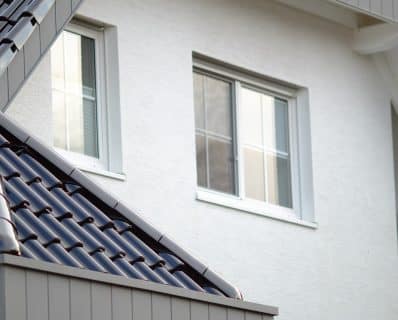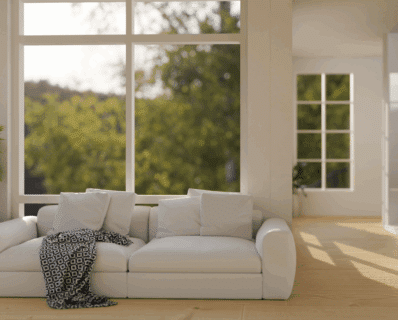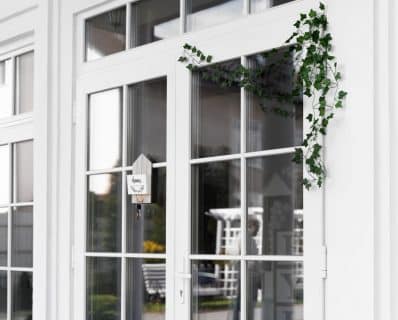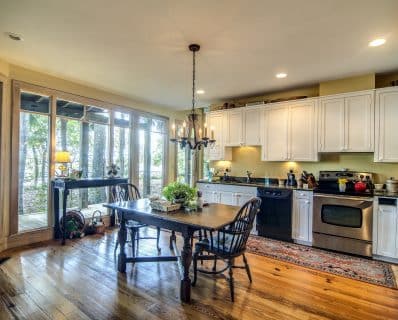Hinged vs Sliding Patio Doors

Contents
- 1 Hinged Patio Doors Overview
- 2 Advantages of Hinged Doors
- 3 Disadvantages of Hinged Doors
- 4 Sliding Patio Doors Overview
- 5 Advantages of Sliding Doors
- 6 Disadvantages of Sliding Doors
- 7 Space-Saving with Sliding Doors
- 8 Style with Hinged Doors
- 9 Choosing the Right Patio Door
- 10 Conclusion
- 11 Frequently Asked Questions
Start your home renovation project with us by reading our new blog post about hinged vs sliding patio doors. Hinged doors are an eternal classic. Sliding doors provide a space-ergonomy function. Choosing between these two can significantly affect how you interact with your patio area, balancing between personal taste and practicality.
Hinged Patio Doors Overview
Hinged patio doors, known for their classic and elegant design, offer homeowners a timeless appeal. These doors swing open, either inward or outward, providing a grand entrance or exit to outdoor spaces. Their operation is straightforward and efficient.
The beauty of hinged doors lies in their ability to blend with various architectural styles seamlessly. From traditional homes to more contemporary settings, they add a touch of sophistication. The swinging mechanism allows for full access to the doorway.
Single & souble
Homeowners can choose between single and double hinged door options. Single doors are perfect for smaller openings or when space is at a premium. They offer the same elegance and ease of use but on a smaller scale.
Double-hinged doors, including French and bifold styles, are ideal for larger openings. They create an expansive view and an unobstructed pathway between indoor and outdoor spaces. French doors feature dual panels that swing either inward or outward, while bifold doors fold back in sections, offering a unique aesthetic and practicality.
This series includes various materials, finishes, and hardware options. It allows individuals to design their doors down to the last detail. The customization extends beyond aesthetics; it also encompasses performance features like energy efficiency and security improvements.
Advantages of Hinged Doors
Hinged doors bring a classic elegance to any home. Their traditional design fits perfectly with classic architectural styles. Homeowners appreciate their sophisticated look, which adds a touch of timeless beauty.
Ease of access
One significant advantage of hinged patio doors is the ease of access they provide. They open fully, creating a wide passage. This feature is particularly useful for moving large items in and out of the house.
Their ability to swing also allows for better ventilation. It creates a seamless transition between indoor and outdoor spaces, making them ideal for entertaining guests or enjoying a breezy day.
Security
Hinged patio doors offer superior security features compared to their sliding counterparts. Their construction and locking mechanisms are designed to provide maximum protection against intruders.
They often come equipped with multiple locking points along the door frame. This makes them more secure than sliding doors, which typically have less robust locking systems.
Disadvantages of Hinged Doors
Hinged doors swing open, either inward or outward. This design demands clearance space. In smaller patios or decks, this can be a significant drawback. It limits the usable area and may clash with outdoor furniture.
Homeowners must consider their space before choosing hinged doors. They might not be the best fit for compact outdoor areas.
Maintenance needs
Over time, hinged doors may sag. This is due to hinge wear. The weight of the door strains the hinges, leading to alignment issues.
This sagging requires maintenance. Homeowners might need to adjust or replace hinges to keep the door functioning properly.
Higher costs
Several styles of hinged patio doors are expensive. Custom designs and materials can drive up costs significantly.
High-quality woods or unique glass options add to the price tag. These choices, while attractive, make hinged doors a pricier option compared to sliding doors.
Sliding Patio Doors Overview
Sliding patio doors offer a modern, space-saving solution for blending indoor and outdoor environments. Unlike hinged doors that require clearance to swing open, sliding doors operate within the same plane. This design maximizes usable space, particularly in smaller rooms or areas where furniture placement is important..
They glide horizontally on tracks, allowing for easy access to patios, decks, or gardens without compromising interior space. Their structure comprises one stationary panel and at least one movable glass panel, facilitating smooth operation.
Glass panels
The construction of sliding patio doors emphasizes large glass panels. These expansive windows invite natural light into the home, creating an illusion of a bigger space. They also provide unobstructed views of the outdoors.
For those concerned about privacy, various options are available. Tinted or frosted glass can reduce visibility from the outside while still allowing light to penetrate. Curtains or blinds can also offer additional privacy when needed.
Aesthetic variety
Sliding door designs have evolved significantly over the years. Today’s market includes traditional sliding glass doors, sliding French doors, and even multi-slide doors that open entire walls to the outside. This variety caters to different architectural styles and personal preferences.
Sliding French doors combine the elegance of French doors with the practicality of sliding mechanisms. Multi-slide options allow for larger openings, which are perfect for entertaining or bringing the outdoors in during favourable weather.
Advantages of Sliding Doors
Sliding doors stand out for their space-saving qualities. Unlike hinged doors, they don’t require extra space to swing open or close. This makes them an ideal choice for homes where outdoor or indoor space is at a premium. They glide along a track instead of swinging out, ensuring that no additional area is needed for operation.
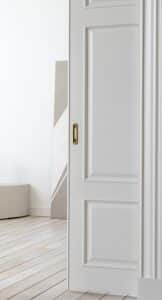
Homeowners can maximize their living areas without sacrificing access to their patios or gardens. This efficiency is particularly beneficial in smaller homes or apartments where every inch of space matters.
Natural light
One of the most significant benefits of sliding doors is their ability to maximize natural light. Thanks to their larger glass panels, they offer an unobstructed view of the outdoors, allowing more sunlight to enter the home compared to hinged patio doors.
This influx of natural light can make rooms appear larger and more welcoming while also reducing the need for artificial lighting during the day. It’s a simple way to boost the aesthetics of your home while being energy efficient.
Low maintenance
When it comes to maintenance, sliding doors have a clear advantage over their hinged counterparts. They boast fewer moving parts, which translates into less wear and tear over time. The simplicity of their design means there’s less that can go wrong, making them a low-maintenance option for busy homeowners.
The tracks on which sliding doors operate are easily accessible and straightforward to clean, further reducing the time and effort required for upkeep. This aspect is particularly appealing for those seeking durability and longevity in their patio door selection.
Disadvantages of Sliding Doors
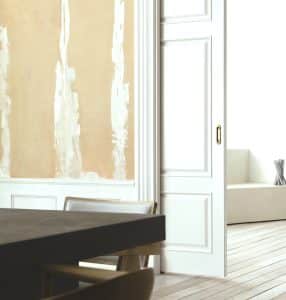
Sliding doors offer a sleek design but come with a necessary limitation: their opening width. Unlike their hinged counterparts, sliding doors cannot fully open. This restricts the passage of large items, such as furniture or bulky outdoor equipment.
Homeowners contemplating between hinged vs sliding patio doors must consider this factor, especially if they frequently move large objects in and out. The maximum opening is half the total width of the door setup. This can pose significant challenges during home renovations or when hosting events that require larger access points.
Track issues
One of the most common complaints about sliding doors revolves around their tracks. Over time, these tracks can accumulate debris, leading to operational issues. Dust, leaves, and even small stones can obstruct the smooth glide of the door.
Moreover, wear and tear on these tracks are inevitable. Continuous use results in degradation, necessitating regular maintenance or eventual replacement. The need for frequent upkeep can deter homeowners looking for low-maintenance options in the choice over hinged vs sliding patio doors.
Aesthetic limitations
For those seeking a traditional look for their homes, there might be better fits than sliding doors. Their design leans more towards modern aesthetics, which may clash with classic architectural styles. This presents an aesthetic limitation for homeowners who prefer a timeless appeal.
The modern style of sliding doors often incorporates large panes of glass without intricate detailing. While this maximizes natural light and views, it may not harmonize with every home’s character.
Space-Saving with Sliding Doors
Sliding doors excel in compact spaces. They require no clearance space, unlike their hinged counterparts. This feature makes them ideal for small rooms or areas where every inch counts.
Homes with limited space benefit greatly from sliding doors. They allow for the maximum use of interior spaces without the need to account for door swing areas. This is particularly useful in smaller kitchens and sunrooms where space is at a premium.
Seamless integration
These doors blend seamlessly with outdoor living areas. They do not obstruct movement on small balconies or patios. This seamless integration improves the functionality and aesthetic appeal of both indoor and outdoor spaces.
The versatility of sliding doors extends beyond just opening up to the outdoors. They also contribute to a more cohesive look between the interior and the exterior, making transitions smoother and visually appealing.
Pocket doors
Pocket sliding doors offer an even greater space-saving solution. When opened, they disappear into the wall, further expanding the living area.
This option is perfect for those looking to achieve a minimalist design or simply maximize their available space. By disappearing into the wall, pocket sliding doors create a sense of openness, making rooms feel more extensive and more inviting.
When comparing hinged vs sliding patio doors, it’s clear that sliding options provide superior space efficiency. Their ability to disappear into walls or avoid requiring swing space makes them a smart choice for modern homes focused on maximizing every square foot.
Style with Hinged Doors
Hinged doors boast a flexibility that seamlessly matches both traditional and modern homes. Unlike sliding doors, which offer a more contemporary look, hinged doors echo the historic charm of traditional dwellings or the sleek lines of modern residences.
They open outwards, creating an inviting transition between indoor spaces and outdoor areas like decks and gardens.

Custom features
Adding decorative elements to hinged doors elevates a home’s appearance to new heights. Homeowners have the liberty to choose from various additional features such as glass panels, grilles, and unique hardware.
Glass inserts can range from simple, clear options to intricate stained designs, adding both style and natural light to interior spaces. Grilles offer an extra layer of design versatility, allowing for patterns that can match or contrast with the home’s existing windows for a cohesive look.
Double impact
Double hinged doors, often referred to as French doors, make a bold statement in any home. They serve as a grand entrance to outdoor areas, instantly catching the eye with their symmetrical beauty.
This door style works exceptionally well in homes aiming for an elegant, yet welcoming atmosphere. It bridges indoor and outdoor spaces effortlessly, making it ideal for entertaining or simply enjoying a serene view.
Choosing the Right Patio Door
Hinged doors need clearance to swing open and closed. This may limit their use in smaller areas. They offer a classic look but require more floor space.
Sliding doors, on the other hand, conserve space. They glide parallel to the wall without interfering with furniture placement or walking paths. Ideal for tight spaces, they provide easy access to your patio without sacrificing style.
Functionality needs
It depends on how you use the door. For frequent going-ins and outs, sliding doors fit better. They operate smoothly and accommodate higher traffic with less wear. Hinged doors are a common type of door you may see in almost every house. It gives them a rank of simple classic.
Architectural style
It is important to match your home’s architectural style. Hinged patio doors suit traditional homes with classic designs. Sliding patio doors offer a sleek look for modern or contemporary homes. Their minimalist design and large glass panes important natural light and views.
Professional consultation
Consulting professionals can reveal customization options you still need to consider. Customized doors can address additional architectural challenges and personal preferences.
Experts provide proper installation, guaranteeing better performance and durability. They advise on materials that resist weather conditions, maintaining energy efficiency.
Conclusion
Choosing between hinged and sliding patio doors boils down to your specific needs, be it style, space-saving, or functionality. Hinged doors offer a classic appeal and easy access, ideal for those valuing aesthetics and traditional charm.
Sliding doors, on the other hand, are the go-to for saving space and enjoying large, uninterrupted views. Each has its advantages and drawbacks, but understanding these can guide you to make an informed decision that boosts your home’s value and your living experience.
Ready to transform your patio with the perfect door? Consider your space, style, and needs carefully. Whether you lean towards the elegance of hinged doors or the practicality of sliding ones.
Start planning your patio makeover today and step into a more stylish, functional outdoor living space.
HTR takes pride in delivering high-quality products to its customers. They understand the importance of your renovation project and are committed to making it a stress-free experience. HTR experienced team makes sure that all doors improvements meet building codes.
Frequently Asked Questions
Haven’t got your answer? Contact our support now



